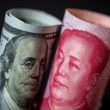Indonesia is moving forward with crypto but with a twist. As reported by local media, the Indonesian government plans to establish a ‘crypto stock” exchange by the end of 2022. As per a senior government executive, this was an effort to protect consumers amid growing interest in digital currencies.
This crypto stock exchange in Indonesia will list companies in the digital asset space, like the exchanges which have received licenses by Indonesian financial watchdog Bappebti. Although the initial plan to launch the exchange was in 2021, the government postponed it to the first quarter of 2022. However, there was further delay due to the complexity of the process, but the deputy trade minister Jerry Sambuaga assured that the government was careful in its approach.
The deputy noted,
“Creating a bourse needs many preparations. We need to see which entities should be included in the bourse. Secondly, we need to validate the said entities. Thirdly, there is a minimum capital and other requirements related to custodian, depository, technical things.”
According to the CEO of TokoCrypto, one of the 25 digital asset exchanges that received a license from the Indonesian Commodity Futures Trading Regulatory Agency, Pang Xue Kai, a crypto stock exchange, can be a catalyst for the whole Indonesian crypto industry. The CEO also believed this could push adoption and drive more interest from institutional investors.
Pang Xue Kai reportedly stated,
“The industry will grow, we’ll start seeing more local projects.”
In fact, recently, tech company GoTo Gojeck Tokopedia also became a part of the crypto ecosystem by purchasing local exchange Kripto Makisma Koin, among the first exchanges to have received licenses by Bappebti.
The Indonesian Commodity Futures Trading Regulatory Agency, known as Bappebti, noted that crypto asset transactions in the country hit 859.4 trillion rupiah, equivalent to $57.6 billion, in 2021. Meanwhile, the number of users reached 15.1 million as of June 2022. However, the country has not recognized crypto assets as a means of payment but only as a trading commodity.





